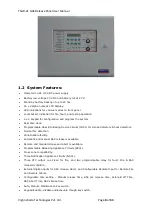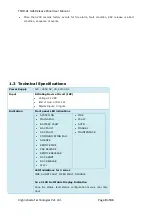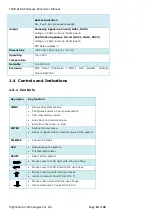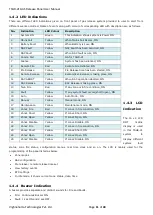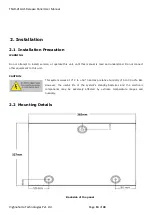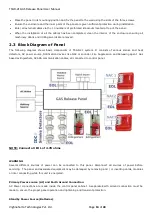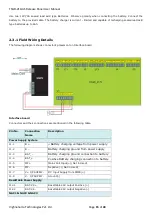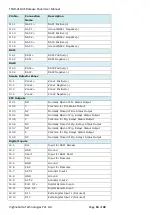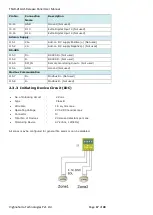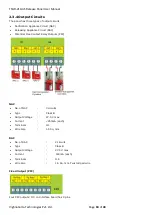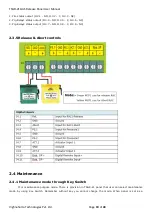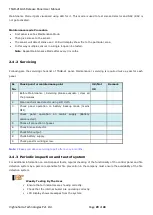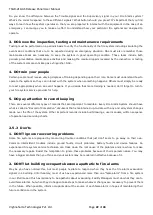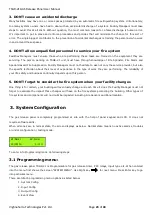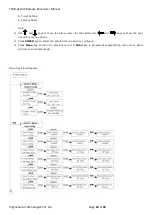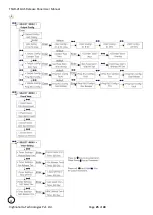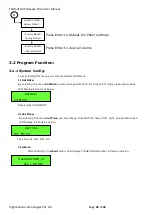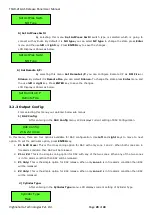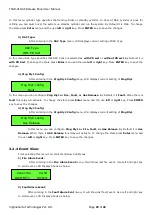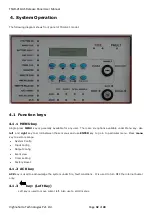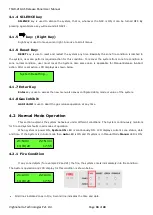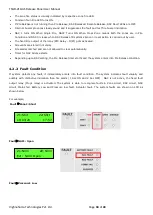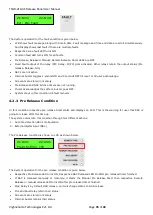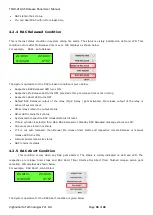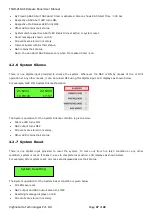
TSGR-21 GAS Release Panel User Manual
Vighnaharta Technologies Pvt. Ltd. Page
22
of
43
Do you know the difference between the Trouble signal and the Supervisory signal in your Fire Alarm system?
What’s the correct response to these different signals? What button should you
press?
It’s important that you find
ways to learn how the system operates so that you are prepared to interact with the equipment in the case of an
emergency. I encourage you to make an effort to understand how your particular fire systems are designed to
operate.
3. DO
know the inspection, testing and maintenance requirements
Testing must be performed on a periodic basis to verify the functionality of the fire system including simulating the
events and conditions that are to be expected during an emergency situation. One must also remember those
maintenance tasks are necessary to keep the system in good operating condition. These tasks include both
periodic preventative maintenance activities and making the required repairs revealed by the inspection or testing
of the system components like gas extinguisher, NAC.
4. DO
train your people
Certain people must receive varying degrees of training depending upon their role. Some must understand how to
operate the system so they can interact with the system when something happens. Others must simply be ready
to react appropriately when an event happens. If you decide that more training is needed, don’t forget to turn to
your fire system service provider for help.
5. DO
pay attention to record keeping
There are several different types of records that are important to maintain. Every Fire Alarm System should have
what is called a “Record of Completion” document that is maint
ained up-to-date with any and all system changes
made over the life of the system. Other important records include built drawings, user manuals, written sequence
of operation and servicing charts.
2.5.2 Don’ts
1. DON’T
ignore reoccurring problems
Some f
ire systems are plagued by reoccurring trouble conditions that just don’t seem to go away on their own.
Common intermittent troubles include ground faults, circuit problems, battery faults and device failures. An
experienced fire system service technician can track down the root cause of the problem and know how to make
the necessary repairs. Resist the temptation to ignore these problems because of their sporadic nature. You may
have a bigger problem than you think and your system may be rendered ineffective because of it.
2. DON’T let building occupants become apathetic to fire alarms
May be you have noticed this, but most people hesitate to respond when they hear the fire alarm evacuation
signals in a building. Unfortunately, most of us have experienced
more than one “false alarm” from a fire system
in our lifetime and this has led many to be apathetic about evacuating. Facility Managers must do what they can to
avoid false alarms, but when they do happen take steps to make whatever changes are necessary to prevent them
in the future. When possible, inform occupants about the source of each false alarm in hopes of maintaining their
future confidence in the system.

